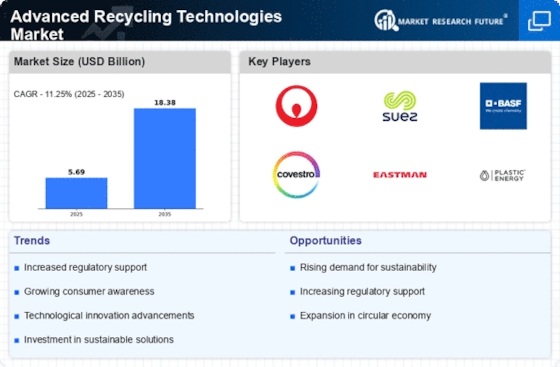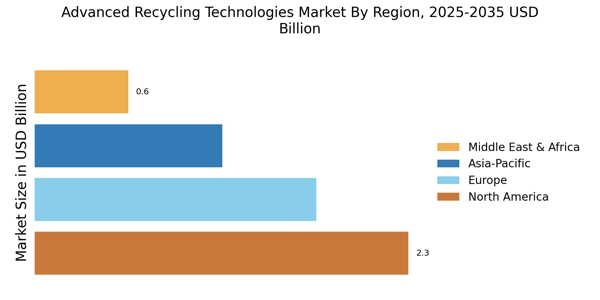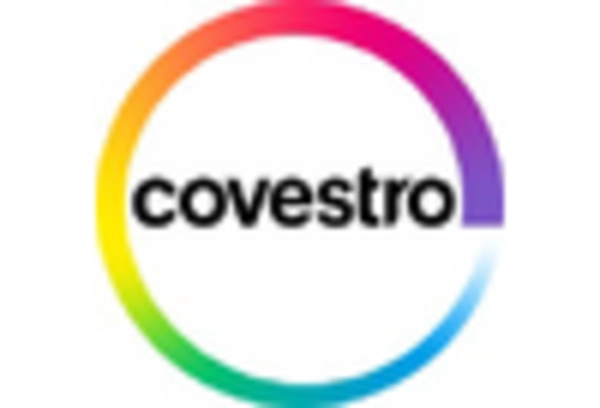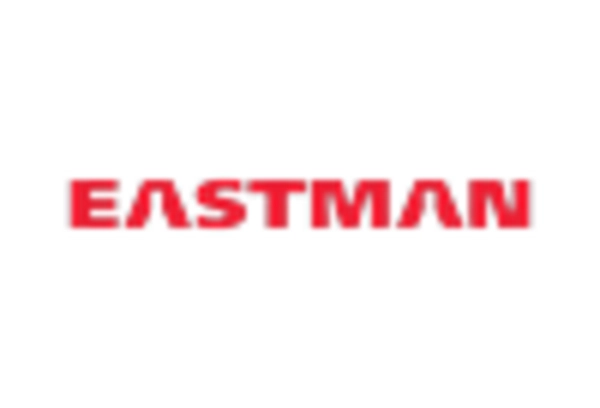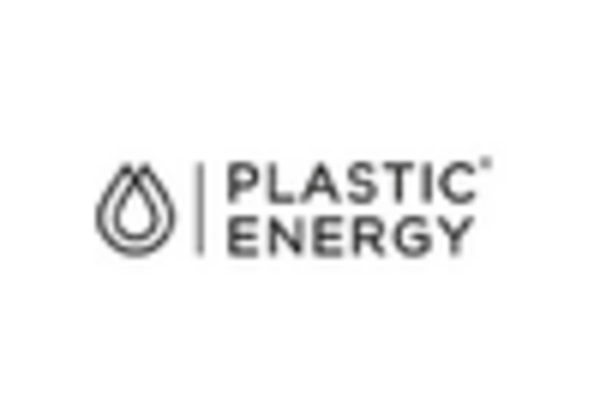Technological Innovations
Technological advancements play a pivotal role in shaping the Advanced Recycling Technologies Market. Innovations in recycling processes, such as chemical recycling and advanced sorting technologies, are enhancing the efficiency and effectiveness of waste management. These technologies enable the recovery of a broader range of materials, including complex plastics that were previously deemed non-recyclable. As a result, the market is witnessing an increase in the volume of materials being recycled, which is projected to reach several million tons annually by 2026. Furthermore, the integration of artificial intelligence and machine learning in recycling operations is streamlining processes, reducing costs, and improving overall performance. This continuous evolution of technology is likely to drive further investment and interest in the Advanced Recycling Technologies Market.
Regulatory Frameworks and Policies
The Advanced Recycling Technologies Market is significantly influenced by the establishment of robust regulatory frameworks and policies aimed at promoting recycling and waste reduction. Governments worldwide are implementing stringent regulations that mandate recycling targets and encourage the adoption of advanced recycling technologies. For example, several regions have introduced extended producer responsibility (EPR) laws, compelling manufacturers to take responsibility for the entire lifecycle of their products. This regulatory environment is fostering innovation and investment in recycling technologies, as companies strive to comply with these mandates. The market is expected to benefit from increased funding and support for research and development initiatives, which could lead to breakthroughs in recycling processes and materials recovery. As such, the regulatory landscape is a critical driver of growth within the Advanced Recycling Technologies Market.
Rising Consumer Awareness and Demand
Consumer awareness regarding environmental issues is on the rise, significantly impacting the Advanced Recycling Technologies Market. As individuals become more informed about the consequences of waste and pollution, there is a growing demand for products made from recycled materials. This shift in consumer behavior is prompting companies to adopt advanced recycling technologies to meet the expectations of environmentally conscious consumers. Market Research Future indicates that a substantial percentage of consumers are willing to pay a premium for sustainable products, which is driving manufacturers to invest in recycling capabilities. This trend not only enhances brand loyalty but also contributes to the overall growth of the Advanced Recycling Technologies Market, as businesses align their operations with consumer values.
Investment in Circular Economy Initiatives
The concept of a circular economy is gaining traction, serving as a significant driver for the Advanced Recycling Technologies Market. This model emphasizes the importance of reusing and recycling materials to minimize waste and maximize resource efficiency. As businesses and governments recognize the economic and environmental benefits of circularity, investments in advanced recycling technologies are increasing. Reports suggest that the circular economy could generate trillions in economic value, creating new jobs and fostering innovation. Companies are increasingly collaborating with stakeholders to develop closed-loop systems that integrate advanced recycling processes, thereby enhancing material recovery and reducing reliance on virgin resources. This commitment to circular economy principles is likely to propel the growth of the Advanced Recycling Technologies Market in the coming years.
Increasing Demand for Sustainable Solutions
The Advanced Recycling Technologies Market is experiencing a notable surge in demand for sustainable waste management solutions. As environmental concerns escalate, industries are increasingly seeking methods to reduce their carbon footprint. This shift is driven by both consumer preferences and regulatory pressures. For instance, the market for recycled materials is projected to grow significantly, with estimates suggesting a compound annual growth rate of over 10% in the coming years. Companies are investing in advanced recycling technologies to meet these demands, thereby enhancing their sustainability profiles and ensuring compliance with evolving regulations. This trend not only supports environmental goals but also opens new avenues for innovation and economic growth within the Advanced Recycling Technologies Market.


